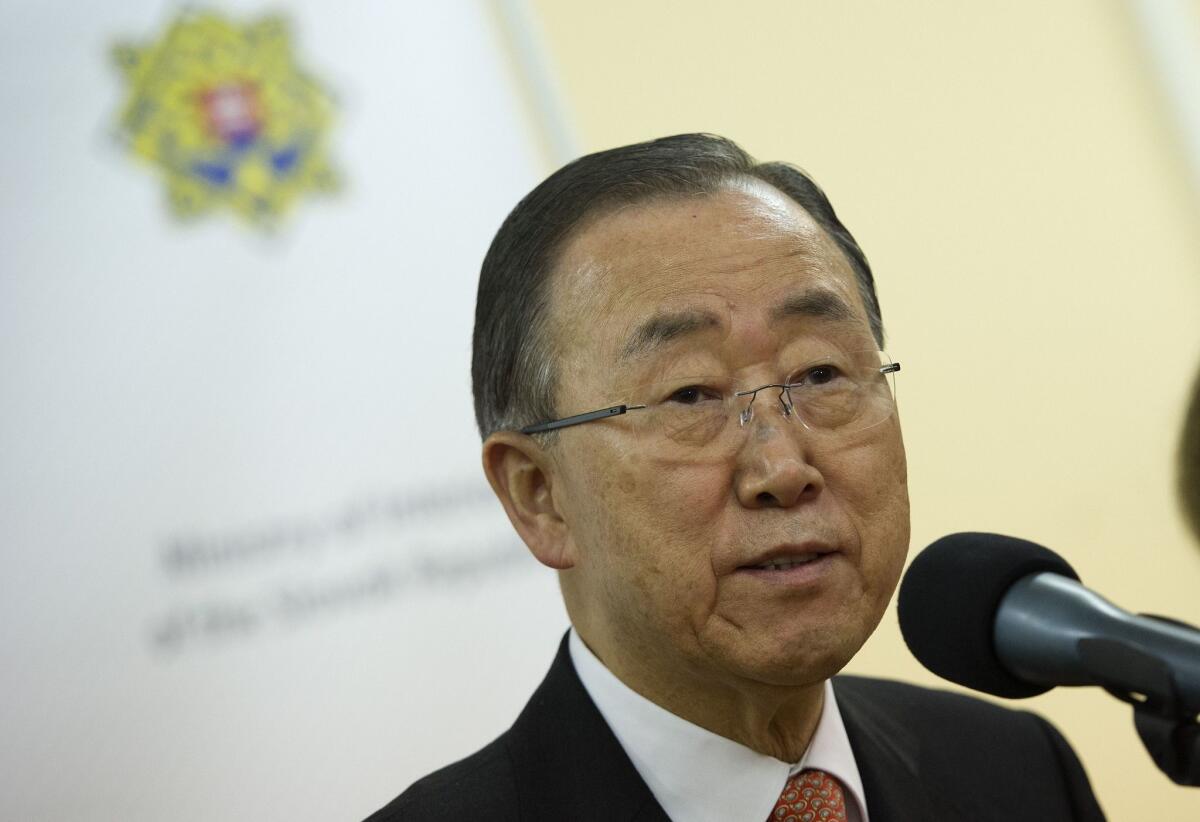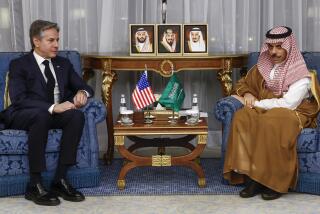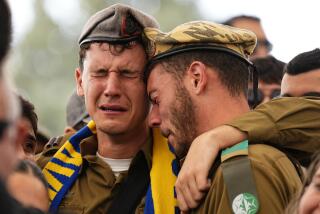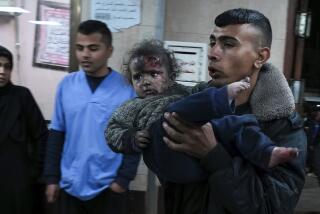U.N. chief visits Israel and Palestinian territories amid tensions

U.N. Secretary-General Ban Ki-moon visits asylum seeks in Gabcikovo, Austria, on Oct. 19.
U.N. Secretary-General Ban Ki-moon made a surprise visit to Israel and the Palestinian territories Tuesday, in a high-profile gambit to bring an end to a monthlong wave of violence.
The visit comes amid unrest that erupted a month ago over tensions surrounding a Jerusalem holy site sacred to Jews and Muslims. It soon spread to Arab neighborhoods of East Jerusalem and then to the West Bank, Gaza and Israel. A spate of Palestinian attacks, most of which have involved stabbings, has caused panic across Israel and raised fears that the region is on the cusp of a new round of heavy violence.
The violence continued in the West Bank on Tuesday as a 24-year-old Palestinian stabbed an Israeli military officer and lightly wounded him before Israeli forces shot and killed the assailant, according to the Israeli military and Palestinian health officials.
The Israeli army said the attack took place in the village of Beit Awwa near Hebron during a “violent riot” of Palestinian demonstrators.
In a separate incident, a motorist driving an Israeli-plated car in the West Bank got out of his vehicle after Palestinians hurled stones at it and began swinging a long stick at passing Palestinian cars. The man hit a passing truck with the stick, and then the truck ran him over, according to an Associated Press photographer who witnessed the incident.
Police spokeswoman Luba Samri said the man was seriously wounded in the incident near the Israeli settlement of Kiryat Arba. His name and nationality were not immediately known.
Ban, who is currently in Europe, is to meet with Palestinian President Mahmoud Abbas in the West Bank and Israeli Prime Minister Benjamin Netanyahu and President Reuven Rivlin in Jerusalem, the leaders’ offices said.
Prior to the visit, Ban issued a video message late Monday calling for calm on both sides.
He said he understood the Palestinians’ frustrations, but that violence would only harm their legitimate aspirations.
“I know your hopes for peace have been dashed countless times. You are angry at the continued occupation and expansion of settlements,” he said. “I am not asking you to be passive, but you must put down the weapons of despair.”
Addressing Israelis, he said he understood their fears due to the security deterioration, but said there was no military solution.
“When children are afraid to go to school, when anyone on the street is a potential victim, security is rightly your immediate priority,” he said. “But walls, checkpoints, harsh responses by the security forces and house demolitions cannot sustain the peace and safety that you need and must have.”
Over the last month, nine Israelis have been killed in Palestinian attacks, most of them stabbings. In that time, 42 Palestinians were killed by Israeli fire, including 21 labeled by Israel as attackers, and the rest in clashes with Israeli troops. An Eritrean migrant died after being shot and beaten by a mob that mistakenly believed he was a Palestinian attacker.
The initial outbreak of violence was fueled by rumors that Israel was plotting to take over Jerusalem’s most sensitive holy site, a hilltop compound revered by Jews as the Temple Mount and home to the Al-Aqsa Mosque, Islam’s third-holiest shrine and a key national symbol for the Palestinians.
Israel has adamantly denied the allegations, saying it has no plans to change the status quo at the site, where Jews are allowed to visit but not pray. Israel has accused Palestinian leaders of incitement to violence over the site. But Jewish visits to the site have doubled since 2010 and senior members of Netanyahu’s government have called for Jewish prayer rights, fueling Palestinian concerns about the site.
Israel has struggled to contain the attacks. Authorities have blocked roads and placed checkpoints at the entrances of Palestinian neighborhoods in East Jerusalem. Other security measures include ID checks and requiring some Palestinian residents to lift their shirts and roll up pant legs as they exit their neighborhoods to prove they are not carrying knives. Soldiers have been deployed in Jerusalem and cities across Israel.
On Tuesday, the Israeli military arrested top Hamas official Hassan Yousef in the West Bank, saying he had been “actively instigating and inciting terrorism” by encouraging attacks against Israelis.
“Hamas’ leaders cannot expect to propagate violence and terror from the comfort of their living rooms and pulpits of their mosques,” said Lt. Col. Peter Lerner, a military spokesman.
Yousef is a co-founder of Hamas, the Islamic militant group that rules the Gaza Strip. His son, Mosab, spied for Israel between 1997 and 2007 and wrote a book about his experiences.
Also Tuesday, the Israeli military demolished the home of a Palestinian who killed an Israeli woman last year. Maher Hashlamoun rammed his car into 25-year-old Dalia Lemkus in the West Bank last year and stabbed her several times before being shot and killed.
His wife told Palestinian radio that soldiers evacuated their three-story building in Hebron and demolished the third-floor apartment where her family lived.
Lerner said the demolition “sends a clear message that there is a personal price to pay when you are involved in terror.”
More to Read
Start your day right
Sign up for Essential California for news, features and recommendations from the L.A. Times and beyond in your inbox six days a week.
You may occasionally receive promotional content from the Los Angeles Times.






